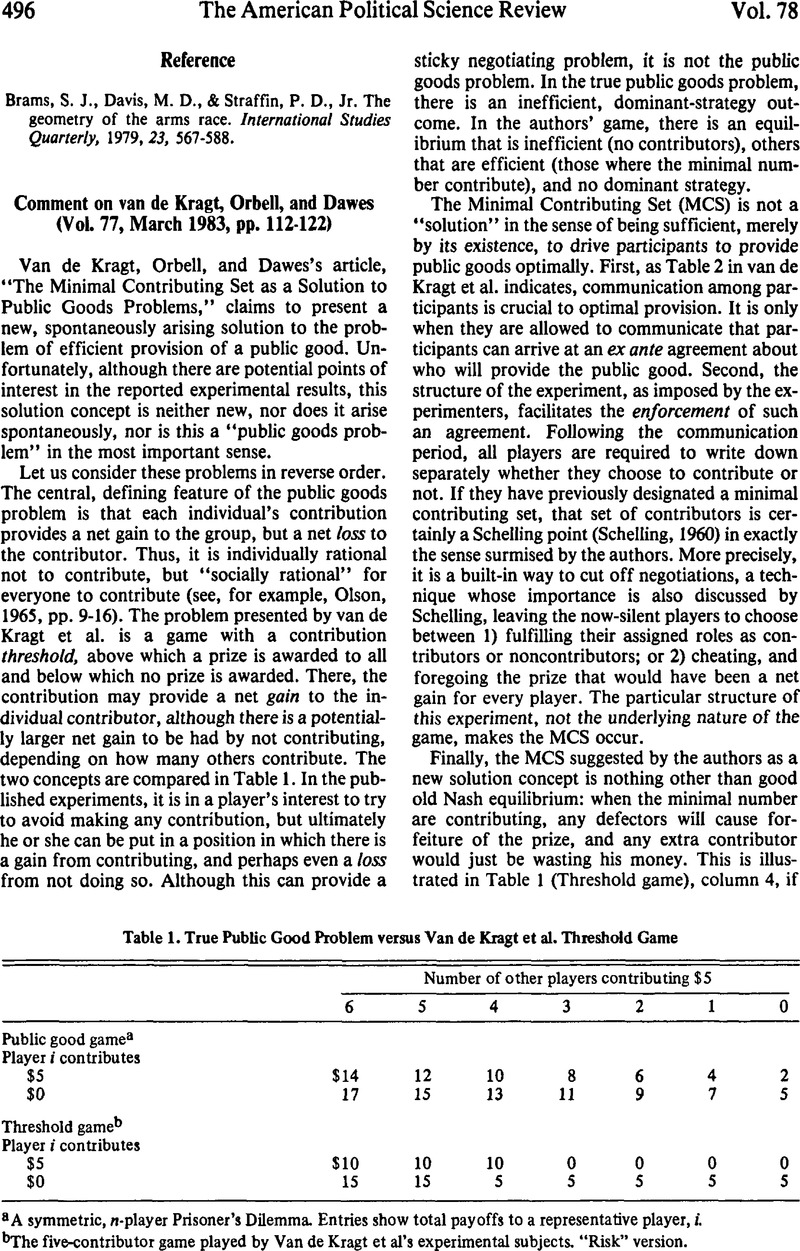Crossref Citations
This article has been cited by the following publications. This list is generated based on data provided by Crossref.
Wilson, Rick K.
1984.
Constraints on social dilemmas: An institutional approach.
Annals of Operations Research,
Vol. 2,
Issue. 1,
p.
183.
van de Kragt, Alphons J. C.
Orbell, John
and
Dawes, Robyn M.
1985.
Reply to Calvert and Wilson (Vol. 78, June 1984, pp. 496-497).
American Political Science Review,
Vol. 79,
Issue. 3,
p.
823.
Thompson, Fred
1987.
Lumpy Goods and Cheap Riders: An Application of the Theory of Public Goods to International Alliances.
Journal of Public Policy,
Vol. 7,
Issue. 4,
p.
431.
Palfrey, Thomas R.
and
Rosenthal, Howard
1988.
Private incentives in social dilemmas.
Journal of Public Economics,
Vol. 35,
Issue. 3,
p.
309.
Calvert, Randall
1992.
Leadership and Its Basis in Problems of Social Coordination.
International Political Science Review,
Vol. 13,
Issue. 1,
p.
7.




Comments
No Comments have been published for this article.